Bulgaria unmasked: My first trip out of Italy in 16 months

(This is the first of a series of blogs on Bulgaria.)
SOFIA, Bulgaria — This sentence sure hasn’t been written very often throughout history: I came to Bulgaria and found freedom.
No, it’s true. I did. I found it in the back of a taxi on the way in from the airport. I was looking at what always draws me back to the old Eastern Bloc: The mix of communist-era, concrete-block buildings that all look the same from Budapest to Bishkek and the modern flash of the new generation. Bulgaria’s capital of Sofia is all those things but it’s laid out on a background of green, natural beauty.
As I gazed at the huge trees and big parks we passed, the cabby, a dark, hefty man whom I mistook for one of Bulgaria’s 600,000 Turkish immigrants, motioned me from the front seat.
“No mask,” he said in heavily accented English.
What? No mask? There’s a pandemic going on. I knew Bulgaria’s curves were low but I didn’t know Covid was gone.
“No corona,” he continued. “No problem.”
Bulgaria is safe
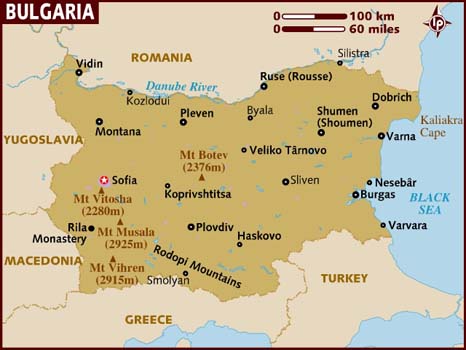
I gingerly took it off. After 16 months of daily wear in Italy, I felt like I was taking off my pants. The cabbie said the only place you need a mask is in shopping centers. Not on the streets.
I looked around and he was right. I saw no one masked outside. I saw a couple of people on buses but few others. Bulgaria’s loosened regulations aren’t due to ignorance or false American bravado. The Covid curves really are low here. In Bulgaria there have been only 421,000 cases compared to 34.5 million in the U.S. and 4.3 million in Italy. That’s 46th in the world. It’s had 61,000 cases per million population (compared to 104,000 in U.S). After a big spike in March, it has nearly flatlined. Bulgaria’s daily average number of cases this last week was 70; its average number of deaths was five.
Bulgaria is safe. I should be. I took enough precautions getting here. Still waiting for my second vaccination when I return to Rome, I had to get a negative molecular test the day before I left. I showed my document at the Fiumicino Airport ticket counter and when I landed in Sofia I gave it to a woman dressed like a nuclear reactor engineer.

I put the mask back on when the cab dropped me at my hotel and the maskless desk clerk said, “It’s not necessary here.”
Strange, I feel naked without it, as if people are staring at me for more than just being 65 years old and still traveling with a backpack. I remain cautious. I live in Italy. We’ve had three Covid waves. When I left Rome, the deadly Delta virus from India had made its way into Northern Italy via the United Kingdom. Officials estimate that 30 percent of new cases in Italy, however low that number may be, are Delta. Maybe it’s safer in Bulgaria than back home in Rome.
I’m not worrying about it. My week in Bulgaria is my first time out of Italy in 16 months. It’s so great to be out of Italy. (I can’t believe I just wrote that sentence.) I long for something different. Anything. Different food. Different landscape. Even different language. Bulgarian is REAL hard. It took me two days to learn how to pronounce “thank you.” It’s blah-go-DAR-ya. And oh, by the way. I quickly learned I’ve been mispronouncing the capital for more than 60 years. It’s SO-fia, not so-FIA. And it has nothing to do with a woman. (More on that later.)

I came to Bulgaria for a number of reasons. The old Eastern Bloc is my favorite region of the world. The mix of East and West is like walking through one of mankind’s darkest histories with first world comforts right across the street. In every face more than 40 years old, I wonder what stories they could tell. Bulgaria is close to Rome. The flight is only 1 hour, 45 minutes although when I booked, the pandemic had KO’d all the affordable direct flights and I flew through Munich.
I’ve been hearing great things about Bulgaria for years, especially two years ago when Plovdiv, Bulgaria, was one of two Europe Cultural Capitals 2019. The other was Matera, Italy, and I went there twice on assignment instead. I blew it. Plovdiv beats Matera like a cheap Balkan rug.
My only concern was falling into the trap of Bulgaria’s golden triangle of destinations. Like Rome-Venice-Florence in Italy, Bulgaria’s three main points of interest are Sofia, Plovdiv and Sunny Beach on the Black Sea. I kicked myself for not getting off the beaten path. Then I realized something.

Bulgaria is off the beaten path.
According to its Ministry of Tourism, Bulgaria had 9.3 million tourists in 2019, miniscule compared to Italy’s 94 million, France’s 90 million and Spain’s 84 million. I’d never met an American who’d ever been to Bulgaria, let alone correctly pronounce Sofia. With the planet still wiping its eyes from the coma that Covid left it in, the number of tourists I saw over a week here in June could probably fit in my little piazza down the street in Rome. And about 90 percent of them were Bulgarians.
As a tour guide in Plovdiv told me, “We don’t get enough tourists to have a tourist trap.”
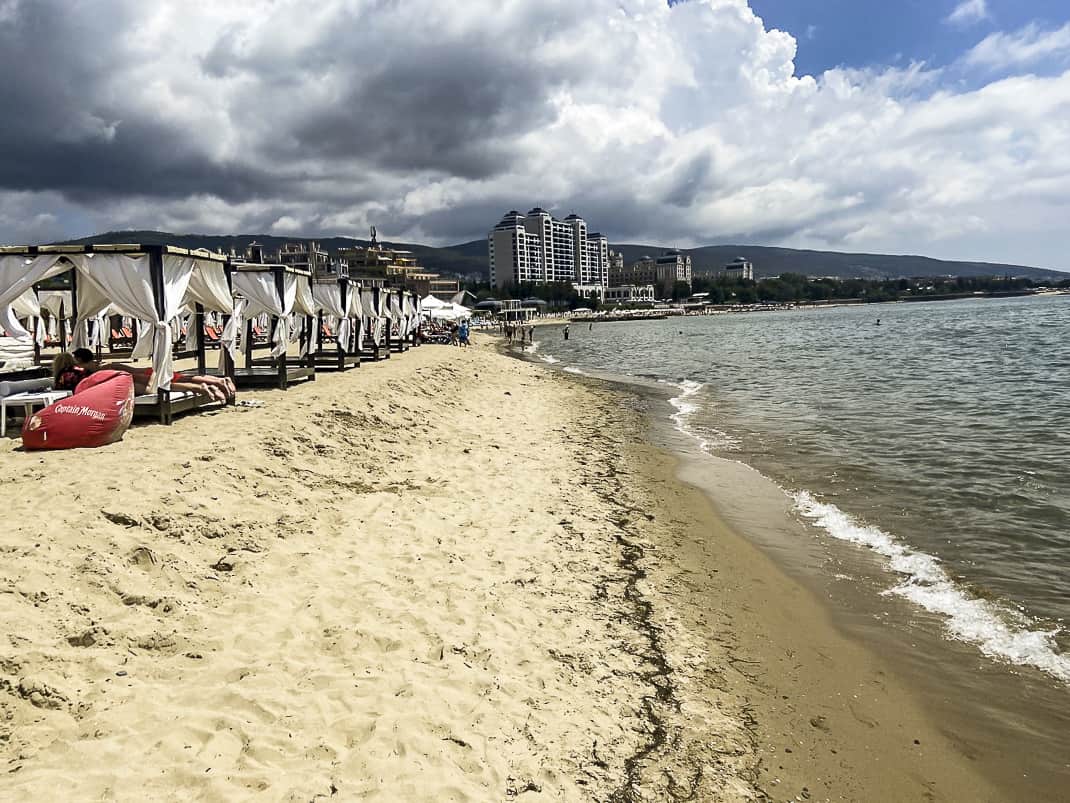
What I found was a country greener than I ever imagined. It’s a land of endless forests and cities filled with massive trees and shady boulevards. The birthplace of yogurt, Bulgarian joined Hungary as my most underrated cuisine in Europe. (Read my blog later on Food of Bulgaria.) Bulgaria’s fledgling wine scene is gaining traction and the three-mile-long beach along the Black Sea to the east was the perfect place to pamper myself as I snuck out from near the end of a global pandemic.
And the people confirmed the word that they are the friendliest people in the Balkans. In the modernist port city of Varna, a local couple I met at a tiny wine bar took me out on the town and I couldn’t pay for a thing at dinner.

Oh, and Bulgaria is the cheapest country I’ve been to in Europe. My Sofia hotel was 32 euros. An elegant three-course meal with beer and wine was 20 euros. Beer was 2 euros. A six-hour air-conditioned bus ride was 9 euros. Sofia’s metro was 90 cents.
Why so cheap? It’s a sad peek into life inside modern Bulgaria. The country is priced for Bulgarians. Bulgaria is the poorest country in the European Union with 41 percent of the population in poverty, according to World Data. Its government collapsed and I couldn’t discuss politics with a Bulgarian without the word “corruption” mentioned in the first sentence.
As the cabbie wound through Sofia’s center toward my hotel, we passed a huge white two-story building with the Bulgarian coat of arms on the top floor.
“Parliament,” he said, nodding toward the building. “Mafia. Big money.”
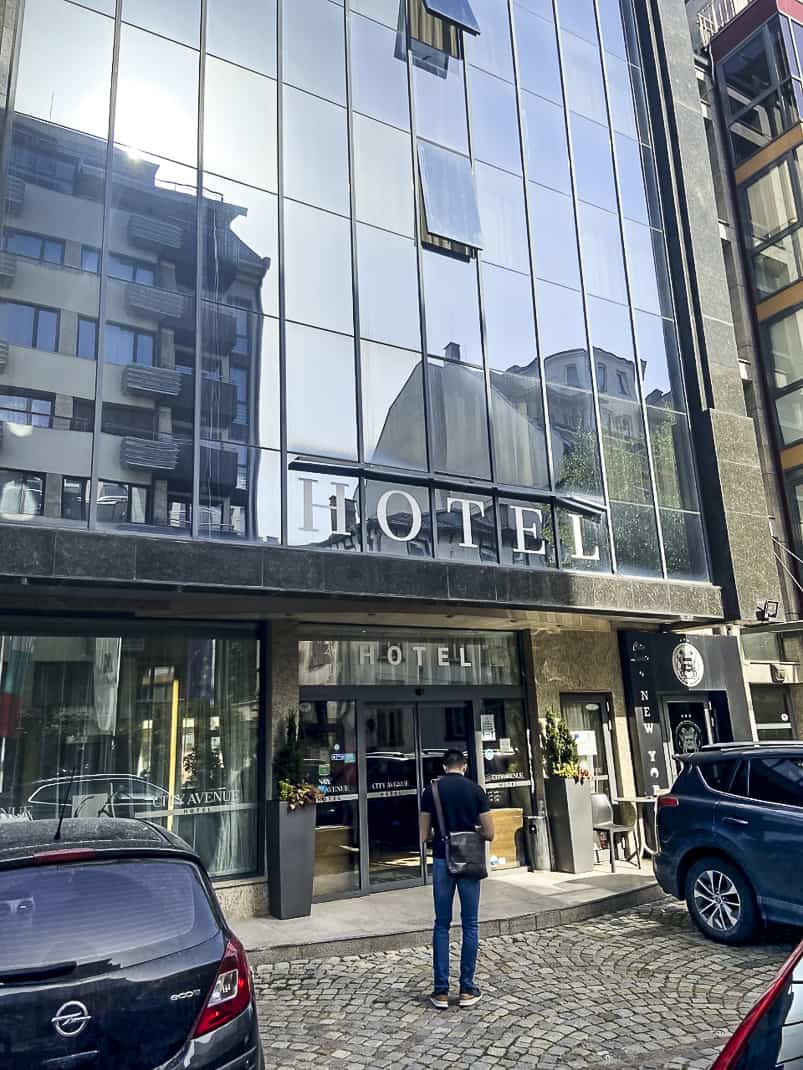
Despite communism ending in Bulgaria in 1990, many politicians and their successors are left over from that period. So is the country’s marketing. Many place names sound devised from a windowless steel room in a massive concrete building in the 1950s. They have all the imagination of gulag furniture.
- My Sofia hotel is called City Avenue Hotel.
- The sunny beach on the Black Sea is called Sunny Beach.
- The beach bar on the beach is called, um, Beach Bar.
- My first restaurant in Bulgaria was called Momo’s Bulgarian Food & Wine.
I wonder if I could buy a souvenir bottle of People’s Cologne.
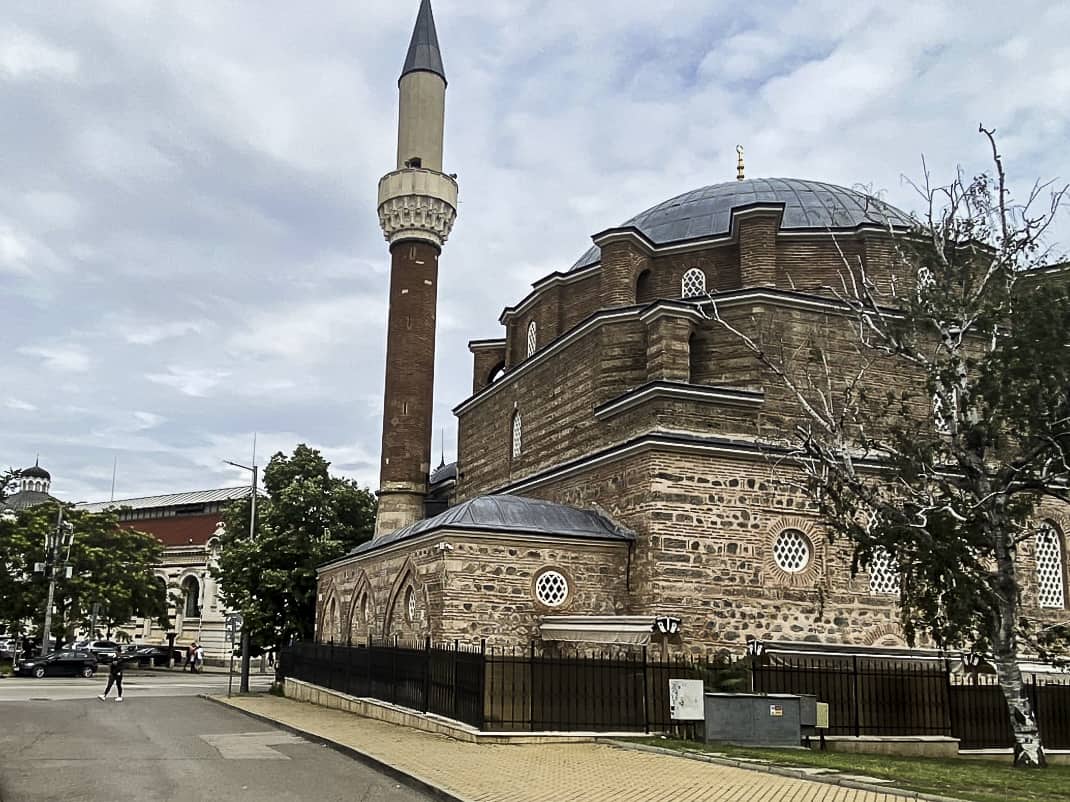
I started my week-long adventure with a free Sofia Walking Tour. (Did I mention Bulgaria is cheap?) I met the guide in front of the Ministry of Justice, a gargantuan white concrete block with massive columns and huge letters. It’s prototype communist architecture designed to impose its will over the masses. It’s 2021. Communism has been dead for more than 30 years and there’s a casino around the corner. Yet I still felt small staring up at the massive facade.
As I waited for the guide and others to arrive, I saw the front of the building was lined with pup tents and a desk where three scruffy middle-aged men and a woman looked angry making points to each other. Another desk near the entrance had three silent, brooding men. This is part of a year-long protest against prosecutor Ivan Gashev who Bulgarians tell me has done nothing to stop government corruption which makes Italy’s look like the Salt Lake City Council.
Boris Borisov, ex-firefighter, ex-bodyguard and, believe it or not, ex-prime minister, was accused of extortion. A photo went viral of his bedside table drawer overflowing with 500-euro notes and gold ingots. According to Politico, the rumor is that a Playboy model or prostitute took the photo.
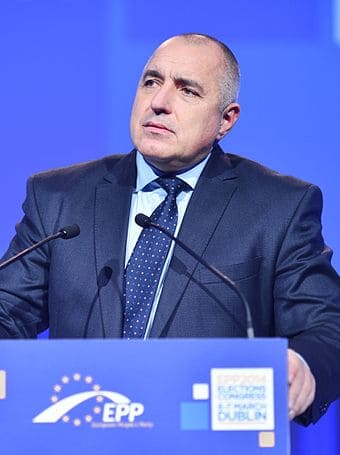
Borisov resigned in April and after a stalemate election in April, new elections await July 11 with Bulgaria’s six political parties ready to hook horns. Meanwhile, interim prime minister Stevan Yanev promises to fight corruption.
The tour
Dessi, the tour guide, is a fit, 29-year-old with long dark hair and modest shorts. She spoke English so well I asked if she was American. No. Since communism fell, English has been compulsory in Bulgarian schools and anyone under 30 is pretty fluent. If you want to learn how to say “Cheers” in Russian, ask the elderly.
Dessi was born and raised in Sofia and studied English from fourth grade through high school. She loves being a tour guide and it showed. It was a terrific tour and for no less reason than the shackles of communism no longer bind the public’s view of the news. I asked her about the tents and banners as we walked to our first stop
“Powerful people are still in the background,” she said. “The prosecutor is linked to those people.”
The history
Now let me compress 8,000 years of Bulgarian history into two paragraphs:
Sofia is 6,000 years old, one of the oldest cities in the world. It’s still surpassed by Plovdiv, which lays claims to 8,000 years of age although Matera claims it’s even older. The Thracians, a warlike tribe (or “barbarian filth” as the Ancient Greeks and Romans called them) from Eastern Europe were the first to settle Bulgaria. They were good at making war and wine which may explain why the Romans conquered them in the 1st century A.D.
Then the Bulgars arrived from the East in the 7th century for a 200-year stay before the Byzantines in the 9th century. The 14th century saw the Ottomans from modern-day Turkey take over and settle in for 500 years of ruthless oppression. Then came the czars who ran Bulgaria into World War II when the communists took over until 1989. Along the way all this time, Bulgaria collapsed twice and was rebuilt twice.
These people have been ruled and ordered around for 8,000 years. No wonder they don’t wear masks.
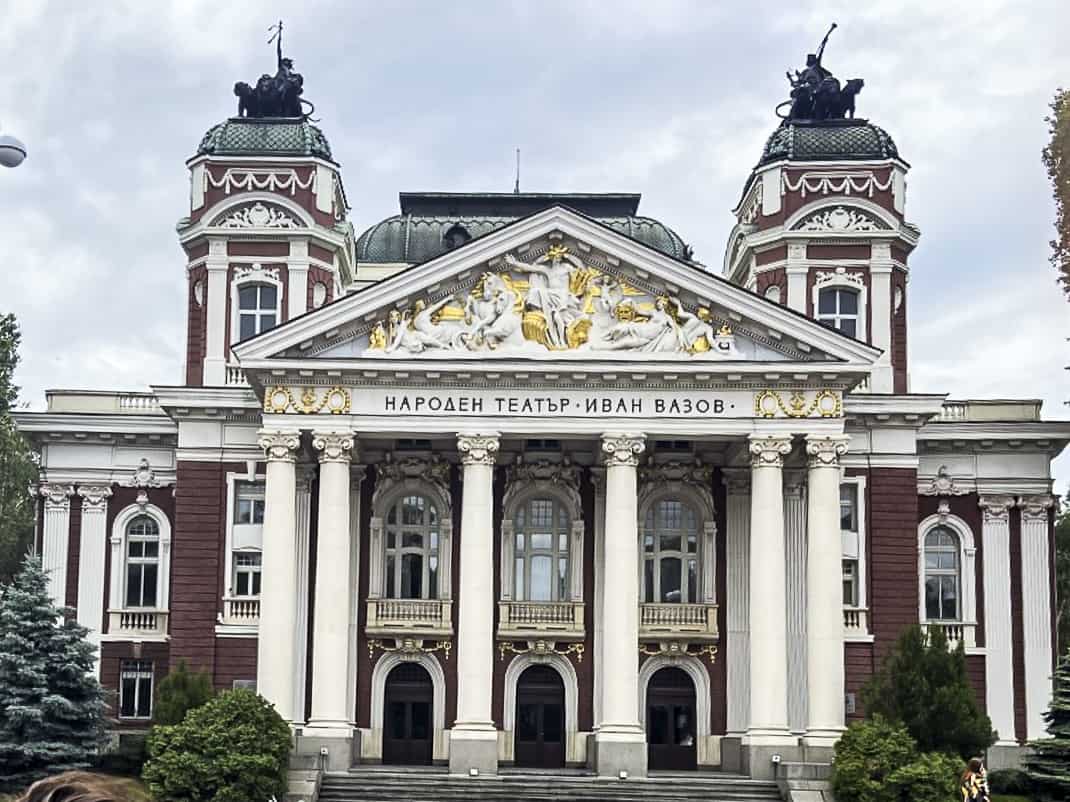
Our first stop came at a set of ruins from the old Ancient Roman neighborhood called Serdica. The city didn’t uncover them until 2010 when it built the subway. The main talking point, however, is a 24-meter-high bronze statue of a beautiful woman sticking up over the site. For more than 40 years, a statue of Vladimir Lenin stood here. For the Millennium, city officials took it down and put up this statue as a better representative of modern Sofia not to mention being a bit more attractive than Vlad. The statue is called Sofia but the name of the city comes from the Greek word for wisdom. It’s why on Sofia’s arm she is balancing an owl, the symbol of Athena, the Greek goddess of wisdom.
In the background, I couldn’t help noticing the fascinating clash of Bulgaria’s past and present: A huge sign depicting drawings of four men with the words “BULGARIA’S NATIONAL HEROES.” Next to it stood the McDonald’s golden arches.
“Our first McDonald’s came in 1991,” Dessi said. “There were huge lines. Going to McDonald’s for your birthday was a big deal.”
We walked another block and saw another symbol of modern Bulgaria. The 16th century Banya Bashi Mosque, an ode to Bulgaria’s Ottoman past, sticks its beautiful red-brick minaret into the sky. It’s almost saluting the Sofia Synagogue one block away.
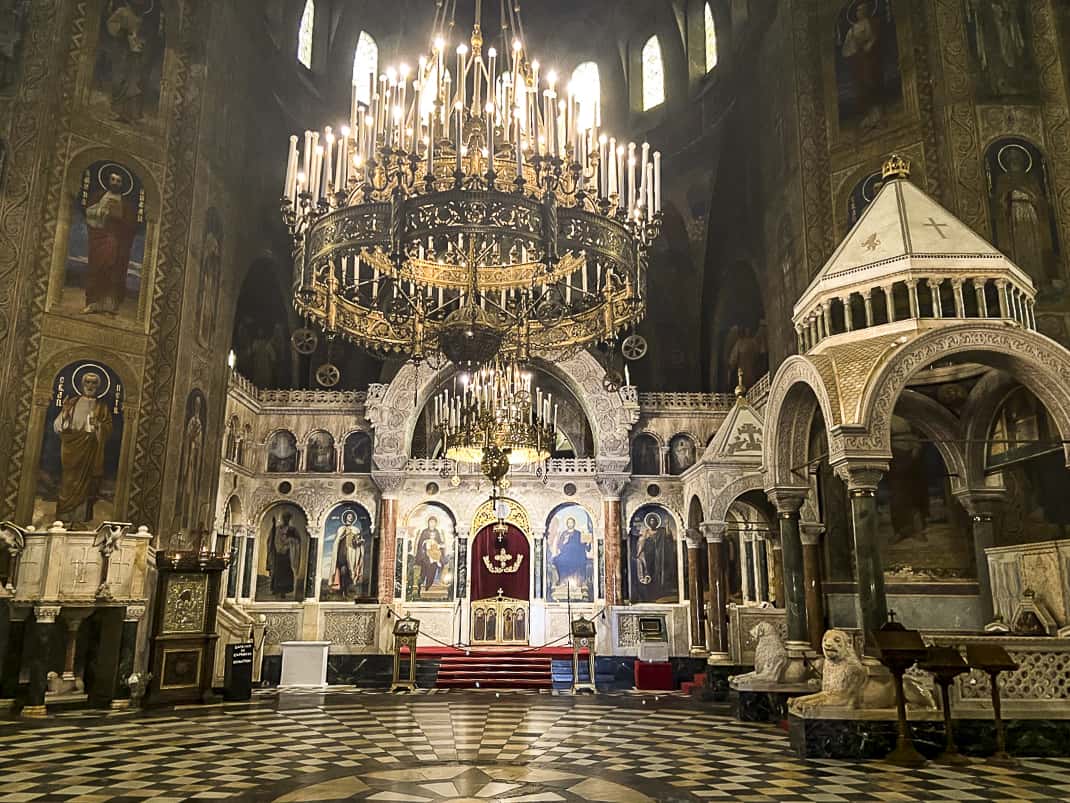
Bulgaria, everyone told me, is a very religious-tolerant country. A big reason is Bulgarians aren’t terribly religious. About 85 percent of Bulgaria’s 7 million people classify themselves as Christian Orthodox. Ten percent are Muslim. In fact, there are 10,000 Muslims in Sofia and the city has no plans to build a second mosque. One is enough. Aleksander Nevski Cathedral, the most famous building in Bulgaria, doesn’t even get crowded.
Bulgaria was one of the few countries that didn’t send Jews to concentration camps during World War II. Dessie said Sofia had 50,000 Jews during the war and at one point piled many of them onto a train to be sent to their fate. However, the head of the Orthodox Church laid on the tracks and wouldn’t move. The Jews were sent free. They had no rights in Bulgaria but were not killed. When World War II ended most left for Israel. Today Sofia has only 5,000 Jews.
Later the communists didn’t ban religion but discouraged it. “We didn’t want any trouble so we stopped going,” Dessi said. “We worshipped at home.”
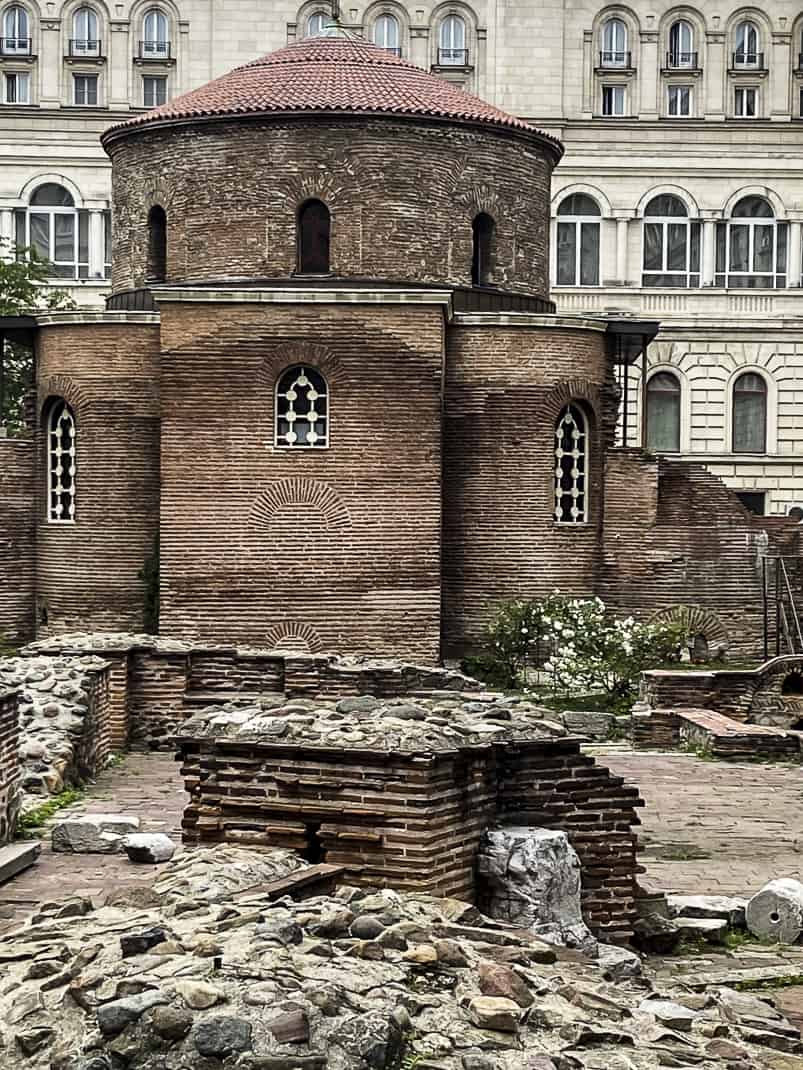
Besides being religiously benign, Bulgarians also have a reputation for being late. There’s a reason behind their madness. Dessie explained as she pointed to the round Sveta Nedelya Church built in the 10th century and rebuilt numerous times. One time came in 1925 when local communists wanted the head of Boris III, Bulgaria’s unpopular czar. They hid explosives in the inside of the roof and blew them up during a funeral for one of Boris’ colleagues, knowing Boris would be there.
He wasn’t. He was late returning from another funeral. Boris survived but the blast killed 200 and injured 500.
“So now we say, ‘Being late can save your life,’” Dessi said.

We came to a long, elegant building with a copper dome and a high curved archway over the door. A pretty fountain pumped out sprays of water in front. This was the public bath house, used by people before communism at the beginning of the 20th century when few people had private baths. The poor received coupons and spent all day here on Sunday, Bulgaria’s day of bathing.
Dessi said people would congratulate each other for taking a bath. Some still do.
“It’s 2021 and I’m a modern woman,” Dessie said. “I take baths regularly. But every time I do my grandfather congratulates me.”

In fact, Winston Churchill once said of Bulgaria, “You can never dishonor a people for congratulating each other for taking a bath.”
“Then he bombed Sofia,” Dessi said.
I asked her about the stories her grandfather told her. Yes, today we know communism is more than a four-letter word but people forget what countries were like before communism. The czars had no Winston Churchills.
In other words, people have revolutions for reasons.
“It’s difficult to explain our relationship with our communist past,” Dessi said. “Some say it’s the best thing ever; some say it was the worst thing ever. There’s no middle. They did so many great things for the people and so many awful things.”
What great things? I asked.
“My grandfather adored it,” she said. “He got chances. They had no electricity or water. They bathed in a river. They had no education until communism began. So he had a free and great education, and he became one of the best engineers in the country.”
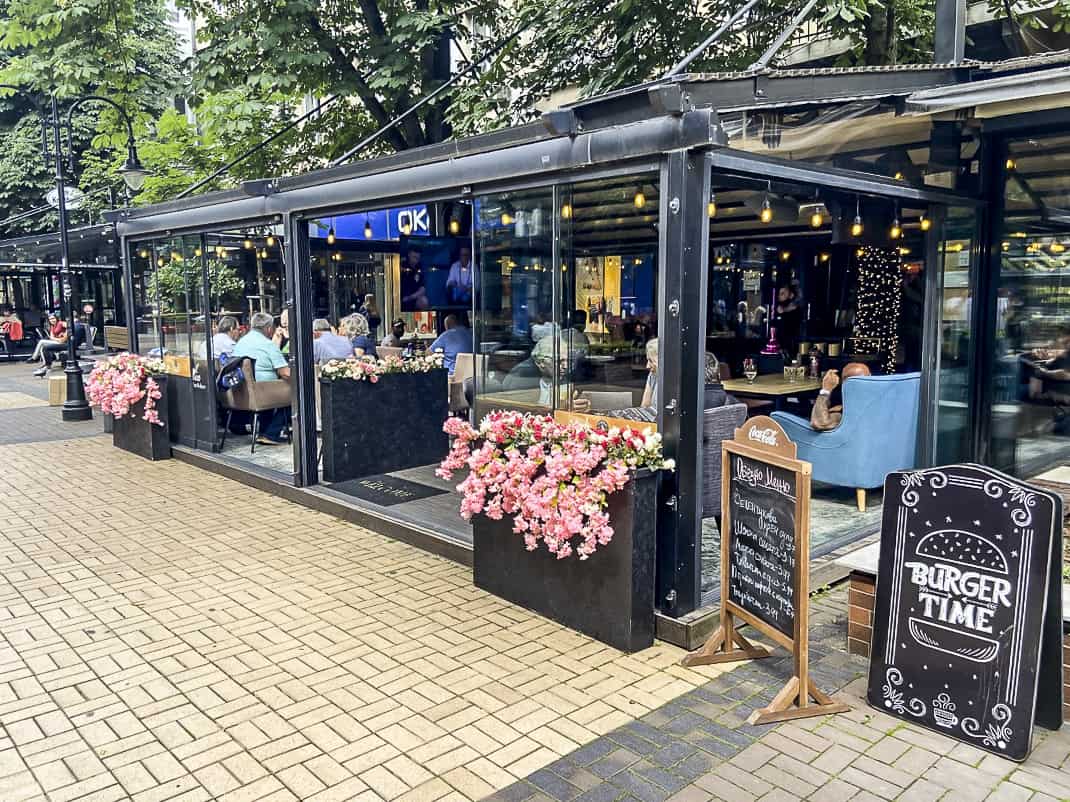
As we ended the tour, I snapped back to modern Bulgaria. I walked down Bul Vitosha, Sofia’s main shopping street lined with brand name companies such as Benetton sharing space with modern, chic restaurants and their elegant patio seating.
Casinos are littered around the capital. Nothing is more stark than the silhouette of a curvy woman in full flight next to a giant concrete example of drab communist architecture.
Chat with an ex-pat
What is it like living in Bulgaria today? I met an American expat who has lived in Sofia for more than six years. He didn’t want to give his name (“I don’t want to be recognized,” he told me.) but he gave me a first-hand account, from one expat to another.
We met in the lobby of the opulent Grand Hotel Sofia. Built in 2004, the Grand is a five-star hotel and still has rooms for as low as 85 euros a night. The man I’ll call Joe often stayed here during visits before moving here permanently. Joe is retired, in his ‘70s and has lived in Europe nearly his entire post-graduate life.
“From a language standpoint it’s difficult,” he said. “You go into a shop and if it’s an older person, forget about it. Older I mean 45. If somebody’s 25, 28 chances are they can speak English and won’t speak English.”
He said the national bureaucracy is difficult to maneuver especially for someone like him who doesn’t speak the language.
“Everything has to be notarized,” he said. “If you want to take a piss, it has to be notarized. In these six years, I’ve signed my name more often than in the previous (years of my life). You take a car to a workshop, you have to sign documents. It’s incredible. Almost everything is paid in advance. Maybe it’s because you can’t trust anybody.
“Bulgarians over promise and under deliver.”
He said he needed his high school and college transcripts to get a driver’s license. “They said, ‘We need to prove that you can read,’” he said. “‘Not to prove you can read Bulgarian but that you can read.’”
I asked him why he stays and he said at his age it just takes too much energy to move. It’s a pity. I could live here. The people are nice. The food is good. It’s clean. It’s interesting. And did I tell you it’s cheap?
Those thoughts swirled in my head on my last night in the country. I was strolling after another scrumptious meal at a sidewalk table when I came across Aleksander Nevski Cathedral. During the day, its massive foundation and gold dome is a fitting tribute to the 200,000 Russians who died fighting for Bulgarians’ independence against the Ottomans. But at night the lighting bathes the cathedral in a bright yellow glow as if they cover it in gold.
Bulgaria is unmasked again. May we all breathe as freely.


June 29, 2021 @ 9:24 am
In my condo community, we have always had lifeguards at our 2 pools from Bulgaria but they were unable to come the last 2 summers and are sorely missed. At least one of them married an American girl and they now live in Sofia (thanks for the correction on the pronunciation) We miss these bright energetic people and hope they can return next year.